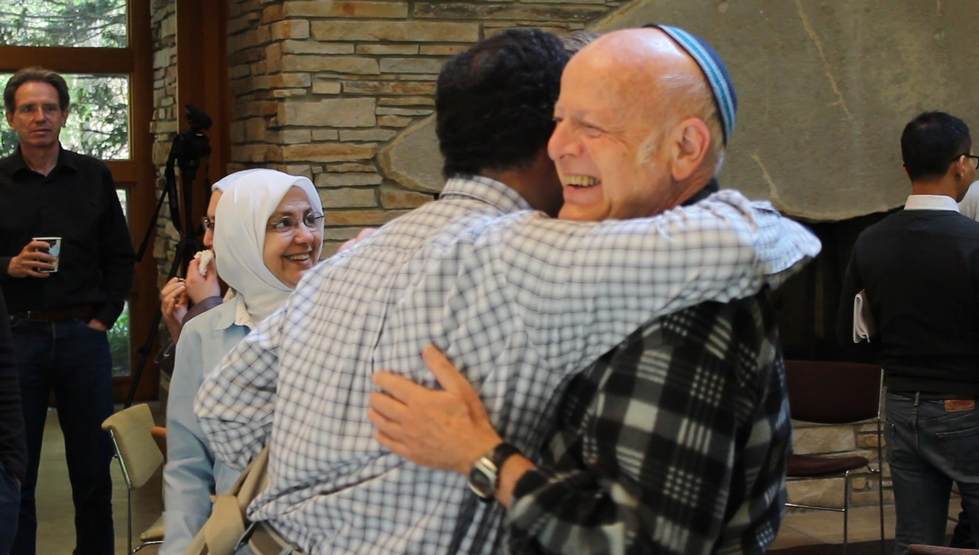2017 Abrahamic Science and Religion Workshop by Project Director Kelly James Clark
It would be difficult to exaggerate the astonishing success of the May 9-14, 2017 Abrahamic workshop on science and religion held at the Fetzer Institute’s Seasons retreat center. Despite some travel hiccups, everyone arrived at the Seasons in time for dinner on May 9. After dinner, to encourage mixing, we had an ice-breaking activity, which everyone enthusiastically participated in. It had the desired effect—from that moment on, people took their meals and walks and had conversations with people from other faith groups and countries.
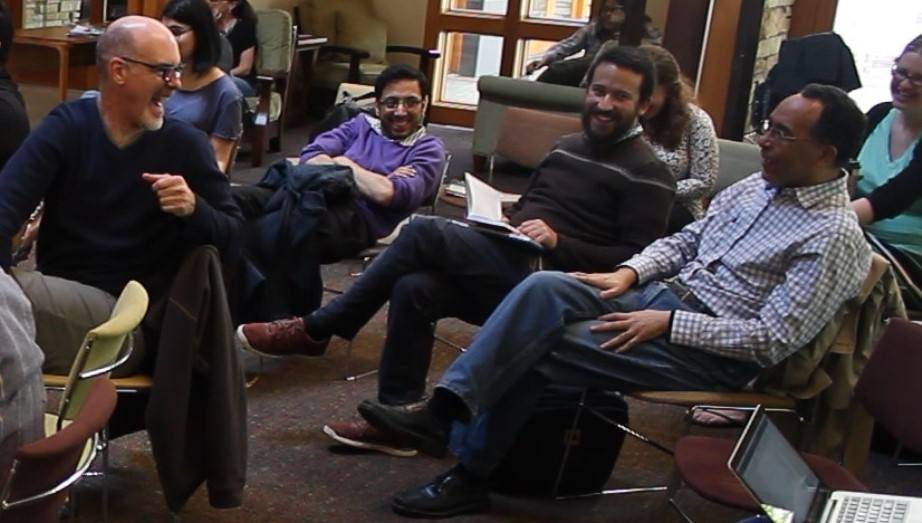
[1500096204].jpg)
We had a second non-academic, ice-breaking, small-group session on May 10. Although it was voluntary, nearly everyone participated, discussing such questions as, "What does it mean to you to live a life of faith? What do you wish people knew about your faith? What do you think is most beautiful in your faith?" Although I had set aside just an hour, the discussions carried long into the night. In fact, they instigated continued sharing along these lines for the remainder of the workshop.
Each morning commenced with a meditation, as per the custom of Fetzer. The meditations added a spiritually uniting benefit at the beginning of each day. One that would not be broken the entire week. Although the meditations were tradition-specific, they invited people from other traditions to share in what was beautiful about each other’s faiths.
May 10 began with an introduction to Islam, led by Yamina Bouguenaya and Shalahudin Kafrawi. Yamina’s calm and inviting presence setting the tone for the conference. This session stimulated a lot of good conversation among the participants.
[1500095306].jpg)
Yamina Bouguenaya
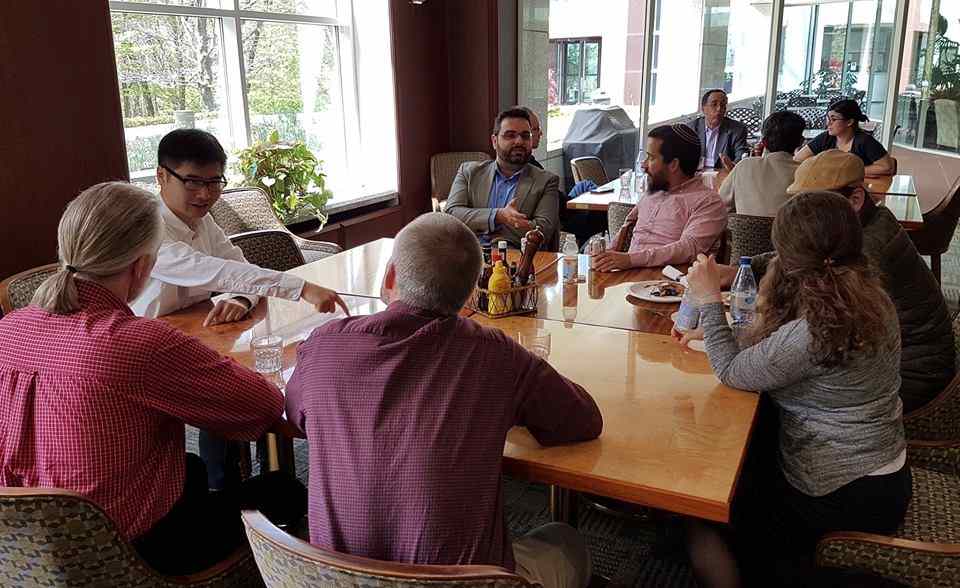
We took our lunch, as we did all our meals, together. Meeting at the Seasons forces everyone to be together all of the time except for sleeping. But I’ve learned that the magic happens over meals, on the deck, and after the sessions – when people set aside their barriers and let others in. This is difficult for academics – and so academic protocols (argument-rebuttal) were well-displayed early on. But kindness and humility and eagerness to work together took over, in no small part to getting to know each other as human beings.
Again, this was our first year together in this three-year project. But we quickly overcame our fears and pride and began to work together in humility. Throughout the conference, great conversations occurred over dinner and drinks where connections were established and interfaith working groups started to coalesce.
[1500437148].jpg)
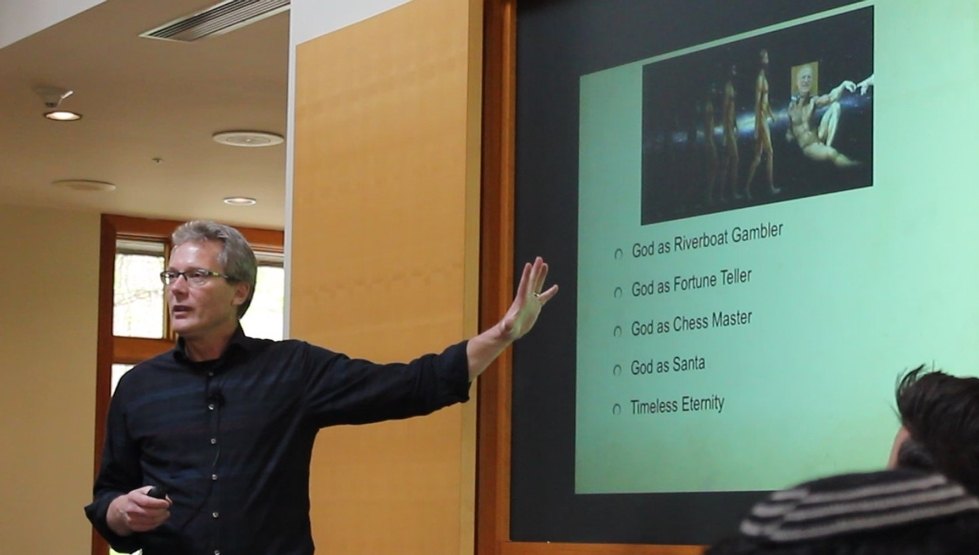
Kelly James Clark
I gave the first academic lecture, “Is God a Bowler or a Curler?” and decided to err on the side of (a) high retention and (b) humor. I think I succeeded on both counts. The positions I outlined were repeatedly referred to throughout the workshop, and the humor contributed to a spirit of intellectual humility and self-deprecation (that one needn’t take one’s own views too seriously).
Over the next few days, our senior scholars gave the following presentations:
-
Rob Koons, “Pragmatic Probabilities: Dutch-Book Theorems vs. the Many-Worlds Interpretation”
-
Karl Svozil, “Manifestation and Appearances of Physical (In)determinism”
-
Nathan Aviezer, “Quantum Theory and Randomness”
-
Nidhal Guessoum, “Randomness in the Cosmos”
-
Scott Davison, “Freedom, Responsibility, and Evil”
-
Alan Love, “The Concept of Chance in Biological Practice”
-
Bruno Guiderdoni, “Fine Tuning in Cosmology”
All of these lectures were excellent and bode well for the academic goals of this project.
[1500175347].jpg)
Nathan Aviezer
Keynote & responses
On Saturday, May 13, the group traveled to Grand Rapids for public presentations by members of our project at Grand Valley’s annual Grand Dialogue in Science and Religion. We used the Dialogue as an opportunity to honor Alvin Plantinga for his Templeton Prize and he graciously joined our group for lunch. Scott Davison gave the keynote, “Science, Faith, and Answers to Prayer,” followed by responses from Yamina Bouguenaya and Nathan Aviezer.
Alvin Plantinga tribute
The breakout sessions at the Grand Dialogue included:
-
Nidhal Guessoum and Alan Love, “God and Evolution: Interfaith Perspectives”
-
Sara Aronowitz, “The Science of History in Islamic Modernism”
-
Nathan Aviezer, “The Anthropic Principle”
-
Kelly James Clark, “Is God a Bowler or a Curler? On God, Chance and Purpose”
-
Sajjad Rizvi and Isra Yazicioglu, “Islam and Providence”
-
Yamina Bouguenaya, “Ventures of Adam in the Quran”
[1500858422].jpg)
Nidhal Guessoum & Alan Love
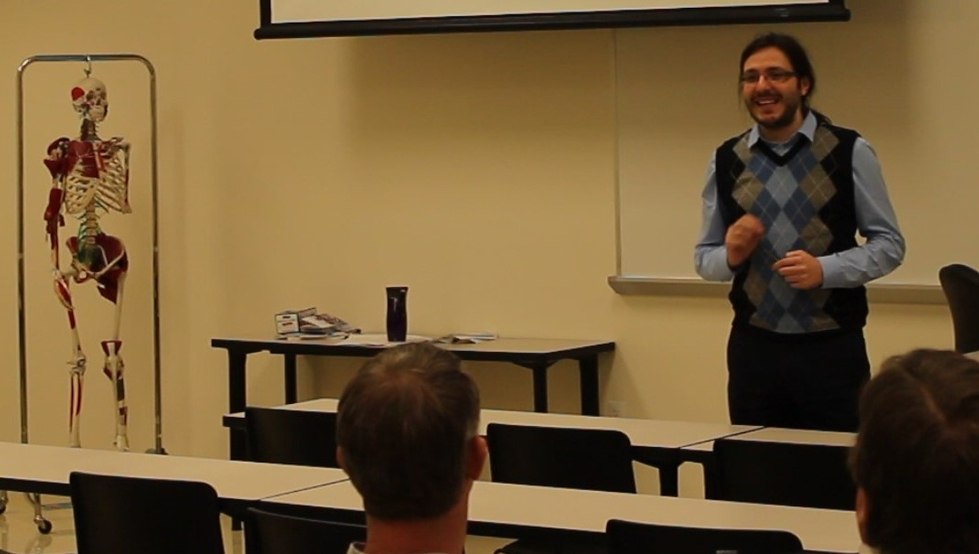
Enis Doko
-
Jeff Koperski, “Mythbusting: What they didn't teach you about science and religion”
-
Enis Doko, “Islam and Violence”
-
Chad Gunnoe, “The Reformations and the Rise of Modern Science”
The audience of about 200 enthusiastically enjoyed every aspect of the Grand Dialogue’s multi-faith exploration.
On our last morning together, Jeff Koperski and I outlined the publishing requirements for the participants and began to assign topics to authors as well as multi-faith teams. These teams will work together over the next two years to create the scholarly and popular books published at the end of the conference.
The hoped-for intellectual stimulation and scholarly buy-in happened, again beyond my wildest imagination. Moreover, the long-term effects of this workshop will ensure lifetimes of contributions in these topics on the part of the participants but also on the part of their students and readers of their books. The participants were inspired at the highest levels of their intellects.
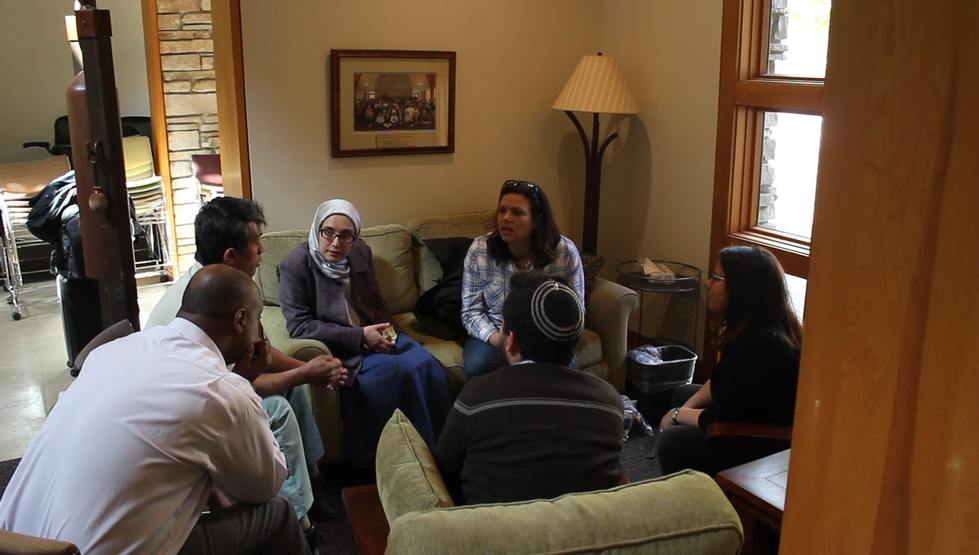
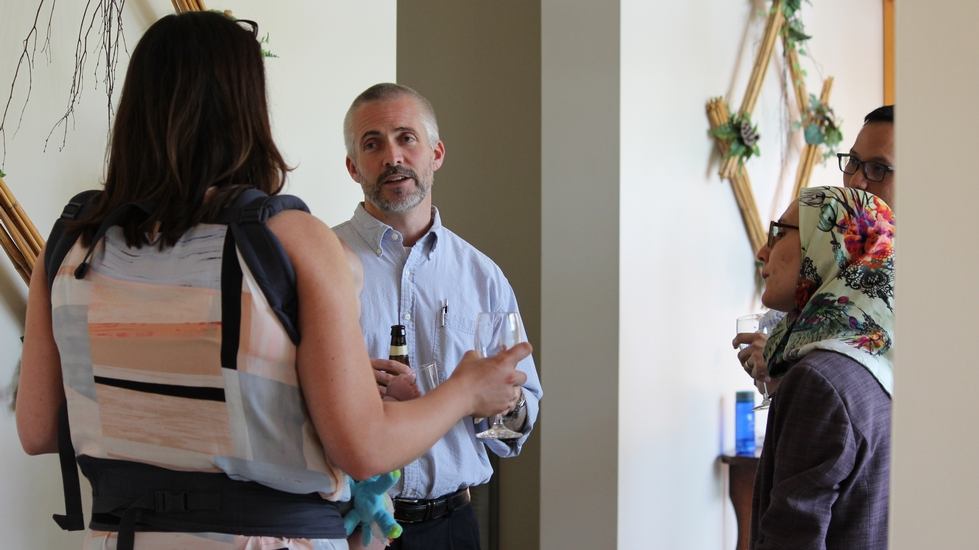
And they were inspired in their hearts to work together not only with other participants but with Muslims, Christians, and Jews in their home communities. While exploring how to take these multi-faith ideas into our classrooms and communities will be more central over the next two years, everyone was motivated to move on to this next crucial step. Again, the long-term impact of inspiring these gifted young leaders to open their scholarship, teaching and communal life to those outside of their comfortable faith communities should prove astounding.
Let me conclude with an anecdote which sums up the week for me. The workshop included scholars from the three Abrahamic religions from all over the world. There was, as expected, some initial suspicion, wariness and distrust even. Many sat with those in their own faith groups for the first few sessions. And then the week happened. On the last day, as everyone stood up to say their goodbyes, everyone embraced—Muslim, Christian and Jew hugged one another. The week had worked.
